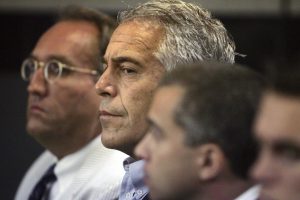Charges brought by the Serious Fraud Office against Barclays were recently dismissed. Below Dominic Carman, noted legal commentator, discusses the implications for the SFO.
More bad news for the UK’s Serious Fraud Office – this time in relation to its five-year investigation into Barclays Bank and its refinancing during the global financial crisis. This protracted investigation had resulted in the first and only set of charges to be brought by the SFO against a bank for its conduct during the crisis. But the case has hit the buffers, somewhat dramatically, after the judge at Southwark Crown Court dismissed the charges. The Financial Times commented: ‘Barclays has scored a major victory over the Serious Fraud Office.’
The court dismissed two charges against Barclays Plc of conspiring with former senior officers and employees of Barclays to commit fraud by false representations relating to agreements entered into with Qatar Holding. Further charges of unlawful financial assistance against both Barclays Plc and Barclays Bank Plc were also dismissed.
These charges stretch back to the events of a decade ago when Britain’s banking system was on the precipice. Following the collapse of Lehmans in September 2008, Royal Bank of Scotland and Lloyds Banking Group had resorted to taxpayer bailouts as the UK government was forced to pay billions of pounds to prop up the country’s biggest lenders which had to be nationalised. However, Barclays managed to avoid this fate by undertaking an emergency fundraising of £7.3bn from Qatari and Abu Dhabi investors - private cash injections secured by the bank in a desperate bid to avoid nationalisation.
In a written statement to the London Stock Exchange following the recent court ruling, Barclays confirmed that charges against the company of conspiring to commit fraud by misrepresentation in relation to this refinancing had been dropped. Other charges were also dropped by the court, namely that Barclays had acted illegally in lending money to Qatari investors at the same time as they were buying shares in the bank.
In June 2017, the SFO had charged Barclays Plc and four individuals with conspiracy to commit fraud and the provision of unlawful financial assistance contrary to the Companies Act 1985. This February, the SFO outlined further charges, namely that Barclays had provided “unlawful financial assistance” in relation to its raising of £4.5bn in June 2008 and a further £7.3bn that October from Qatari investors. The SFO alleged that Barclays lent money to these investors in order to buy Barclays shares, and that other payments made were not disclosed to the market - an arrangement that obviated the need for a government bailout. Under the Companies Act, it is unlawful for banks to lend money to themselves.
Separately, the four individuals (all former Barclays bankers) - former CEO John Varley, and senior executives Roger Jenkins, Tom Kalaris and Richard Boath - face a charge of conspiracy to commit fraud by false representation in relation to their negotiation of the Barclays capital injection from Qatar. Their trial is scheduled to begin next January.
For Barclays Bank, the court’s decision is a significant victory; for the SFO it is yet another disaster. “We are likely to seek to reinstate the charges by applying to the High Court,” an SFO spokesman said in response to the news. Given that the investigation has been underway for five years, it is incomprehensible that the SFO could not deliver its legal argument to the court without sufficient information to support its case to the satisfaction of the judge in the first place.
After the decision, Barclays conceded in a statement that the SFO was “likely to seek to reinstate these charges by applying to a High Court judge to re-commence proceedings via a new indictment of the same charges”. The SFO can still bring a voluntary bill of indictment against Barclays: an uncommon legal process where fresh charges against the bank must be approved by the High Court.
But the judge’s decision nevertheless points to systemic incompetence within the SFO. Without a permanent director following the departure of David Green in April, it continues to be rudderless. Hickman and rose partner, Andrew Katzen, commented: “The SFO’s most high profile prosecution has fallen at the first hurdle, but Barclays isn’t off the hook yet. The SFO is almost certain to seek to continue the prosecution by applying to the High Court to issue what is called a voluntary bill of indictment. Nevertheless, the ruling makes for an inauspicious start for the prosecutor as it awaits its new director.”
That new director – widely touted to be Lisa Osofsky – has still not been confirmed nearly two months after David Green’s departure. Indeed, no announcement of any kind about the new permanent SFO director has been made. Instead, there has been total silence. Exactly why the Attorney General, Jeremy Wright, has not been in a position to say anything is in itself extraordinary. Continued uncertainty can only add to increased speculation that the SFO has no future in its current form.




















